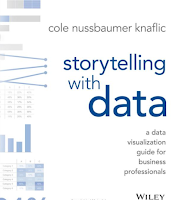How I learned to be a better writer
When I first joined my current employer, it was in a communications role. I had been a consultant for over a decade, mainly working with tech companies to develop PR campaigns and hone their marketing messages. I was pretty good at it, especially the writing part.
In high school, I used to ace my writing assignments, and I would help my romance-writing mom by proofreading her work when asked. In university, I successfully completed a master's in English literature while taking on freelance writing and editing gigs. Along the way, I contributed articles to the campus paper, even becoming arts editor one undergrad year. After graduation, writing was an integral part of every job I took.
Along the way, I got used to being considered "the one who could write." It's how I thought about myself too.
Smaller fish in a bigger pond
So, it was a change for me to join an organization with a sizable communications team, where communications is central to the organization's mandate, and find at least dozen writers and strategists who were at least as good as I was; some were far better. It was humbling to have my work completely re-written for the first time in... a very, very long time.
Happily, for the first time in over a decade, I truly grew as a writer and as a communicator. Here is some of what I learned about becoming a better writer over that time.
Everyone can become a better writer
And that's one of the main reasons I have this blog. It's a daily writing and reflection practice. Yes, I want to reflect on what I learn in order to integrate it better. I also want to become a better writer.
Thanks for reading along!
In high school, I used to ace my writing assignments, and I would help my romance-writing mom by proofreading her work when asked. In university, I successfully completed a master's in English literature while taking on freelance writing and editing gigs. Along the way, I contributed articles to the campus paper, even becoming arts editor one undergrad year. After graduation, writing was an integral part of every job I took.
Along the way, I got used to being considered "the one who could write." It's how I thought about myself too.
Smaller fish in a bigger pond
So, it was a change for me to join an organization with a sizable communications team, where communications is central to the organization's mandate, and find at least dozen writers and strategists who were at least as good as I was; some were far better. It was humbling to have my work completely re-written for the first time in... a very, very long time.
Happily, for the first time in over a decade, I truly grew as a writer and as a communicator. Here is some of what I learned about becoming a better writer over that time.
Everyone can become a better writer
- I learned that useful feedback comes from all quarters; everyone had different strengths and perspectives that helped me get better. By being open to my peers' feedback (not always easy for someone who had been a lone practitioner for a while), I became a better writer, and learned things that remain with me to this day. I learned the most from one of my more "junior" colleagues. She had a fabulous way of telling me there were just "too many words." I still try to read things through her eyes.
- In getting and receiving feedback, I learned how important it is to start with comments rather than edits. Comments allow the writer to understand why an edit is required, the nuance that's been missed; the writer can make the change in their own way. On the other hand, edits can be dis-empowering, like the editor is saying "hmm, you didn't get that right; i'll just do it." It's bit like micro-managing in other domains. Don't get me wrong, I am used to having my work edited... but when the edits start to look like a re-write, it's better to let the writer try again (time permitting). I try to do this with everyone I work with, especially those who say they want to be better writers—even if writing is not their profession.
- Finally, the experience reinforced the fact that everyone can be a better writer. For most of us, it's about learning how to edit ourselves, to re-read our words with a fresh eye, and to ask ourselves "what am I trying to say?" If you regularly invite feedback from others, you'll get better at re-reading your own work with a critical eye.
And that's one of the main reasons I have this blog. It's a daily writing and reflection practice. Yes, I want to reflect on what I learn in order to integrate it better. I also want to become a better writer.
Thanks for reading along!

Comments
Post a Comment